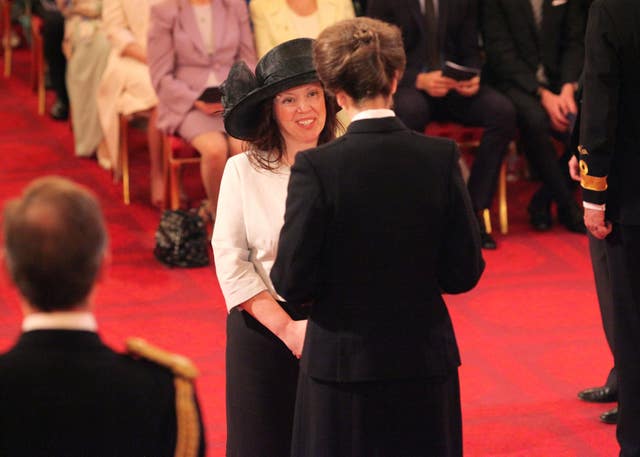Young people believe girls expect physical aggression in sex, porn report finds
Half of those surveyed had seen porn online by the time they reached the age of 13, the Children’s Commissioner’s report stated.

Almost half of young people believe girls expect sex to involve physical aggression, according to a report on pornography which warned that now is a “vital moment” to ensure children are protected against harmful online content.
The newly published research found that one in 10 children in England have viewed pornography aged just nine, with half of those surveyed having seen it by the time they reached the age of 13.
The Children’s Commissioner said the consumption of pornography is “widespread” among children, and highlighted harmful effects including the belief among 47% of young people aged between 16 and 21 that girls “expect” physical aggression in sex, and 42% who said they believed most girls “enjoy” acts of sexual aggression.
Dame Rachel de Souza said the Online Safety Bill, which was having its second reading in the House Of Lords on Monday, “must pass through Parliament as an urgent priority”.
“Now is a vital moment to ensure that we understand the impact of pornography on children’s lives, and to legislate for a commensurate response.”
The report’s findings – from a survey of 1,000 young people aged between 16 and 21 in England, and two focus groups of 13 to 19-year-olds – suggested Twitter is the platform where the highest percentage of children had seen pornography (41%).
This was followed by dedicated pornography sites (37%), Instagram (33%), Snapchat (32%) and search engines (30%).
While the research, conducted between November 2022 and January this year, found that 38% of 16 to 21-year-olds said they had accidentally stumbled across pornography online, half of all survey respondents – 58% of males and 42% of females – in the same age group said they sought it out.

Dame Rachel told of being “deeply concerned about the normalisation of sexual violence in online pornography, and the role that this plays in shaping children’s understanding of sex and relationships”.
She recalled an incident where she was told by a girl who had a first kiss with her 12-year-old boyfriend that he had “strangled her” having seen it in pornography “and thought it normal”.
Most young adults (79%) aged 18 to 21 had seen pornography involving sexual violence before turning 18, the report said.
The research suggested many young people assume that girls expect or enjoy sex involving physical aggression, such as airway restriction and slapping.
A greater proportion of young people stated that girls “expect” or “enjoy” aggressive sex more than boys do.
The report stated that young people were significantly more likely to see violence perpetrated against a woman (65%) than against a man (29%) in pornography.

More than a third of young adults said they had sought out violent pornography involving at least one act of sexual violence.
Dame Rachel said: “Let me be absolutely clear: online pornography is not equivalent to a ‘top-shelf’ magazine. The adult content which parents may have accessed in their youth could be considered ‘quaint’ in comparison to today’s world of online pornography.
“Depictions of degradation, sexual coercion, aggression and exploitation are commonplace, and disproportionately targeted against teenage girls.”
Dame Rachel said all adults in responsible positions, such as politicians, policymakers, parents and teachers, must “listen and take seriously the views of young people contained within this report”, warning that it is “crucial that we do not miss the opportunity to make the internet safe for all children, today and in the future”.
Setting out her recommendations, the commissioner said risk assessment and safety duties relating to children are “key” when it comes to the Online Safety Bill.
She urged MPs to “define pornography as a harm to children on the face of the Online Safety Bill, such that the regulator, Ofcom, may implement regulation of platforms hosting adult content as soon as possible following the passage of the Bill”.
Dame Rachel said she will keep making the case for social networking platforms to protect children from harmful content ahead of the Bill’s implementation, urging them to do so through content moderation and effective age assurance and verification measures.
Richard Collard, NSPCC associate head of child safety online policy, said the report’s findings show “we cannot underestimate the sheer number of children of all ages that are being exposed to online pornography on a daily basis”.
He called for “strong measures” in the Online Safety Bill and said Ofcom should be given powers to set minimum standards “which ensure the rollout of robust age assurance measures on platforms where pornographic material can be viewed”.





